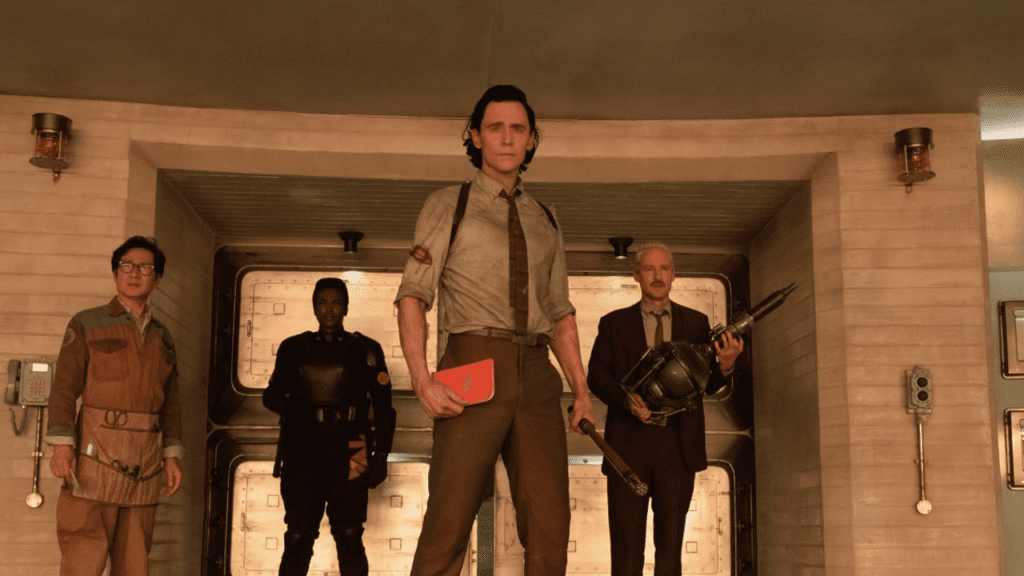‘Loki’ Season 2 Is Charming, Visually Impressive, and Overwrought
The Marvel Cinematic Universe is nearly 3 years into its tenure on Disney+, and it has failed to coalesce into anything that feels as exhilarating or captivating as the franchise’s first decade in the zeitgeist. Sure, there have been some out-and-out successes (Wanda Vision, What If ) and some imperfect but vibrant cinematic experiments (Moon Knight, Ms. Marvel), but the massively popular studio has floundered a bit in its attempt to execute its post-Endgame phase largely on television. Loki season 2 is an ingratiating mixed bag – one that looks so good and is filled with so many good-looking people that it’s too easy to ignore the fact that its sense of narrative coherence is nowhere to be found. The season picks up right where the first left off, with the trickster god turned roguish antihero Loki (Tom Hiddleston) facing a version of the Time Variance Authority that doesn’t recognize him. He’s also experiencing something called “time slipping,” a painful, jolting movement through time and space that looks like a horrific visual glitch. Time and space are out of whack, and the season focuses largely on setting the world right – and figuring out what the right world would look like.

You might think that a series that deals with big themes involving predestination, free will, and a series of moral dilemmas involving the existence of variants would try to hone in on There’s a certain amount of depth, but Loki’s second season focuses more on moving from one crisis to another. The next is to resonate with the characters’ world-shaping decisions. Excess screen time is spent explaining plans that quickly unravel or talking about intricacies that are supposed to save everyone’s lives but are forgotten a few scenes later. It may have been tiring, but his new partner, Ke Huy Quan, single-handedly saved many of these scenes by playing his versatile character, OB, with a wry sense of humor. OB is both aware that everything happening around him is absurd and believes it makes perfect sense within the labyrinthine logic of the series. At his best, Loki has a Douglas Adams-like sensibility, presenting the ever-shifting apocalypse as both serious and undeniably silly. Another smart addition to the cast, Blindspotting star Rafael Casal, helps facilitate this delicate tone, but not all members of the ensemble are utilized. Wunmi Mosaku’s Hunter B-15 is largely sidelined, and Sophia Di Martino’s Sylvie is also somewhat sidelined – though when she does appear, she feels more like the emotional heart of the series than ever run out of.
Overall, Loki season 2 succeeds most when it allows for comedic tension breaks, which are cleverly executed but a bit too few and far between. With the future of the world hanging in the balance, the first four episodes of the season possess the hurried pace of a story that’s all climax, and it’s impossible for any show to keep its high stakes feeling high for so long. Anytime Mobius cracks a joke or he and Loki take time out to eat a slice of pie, glimpses of another, more wholly enjoyable show shine through. Instead, the show builds impressive set pieces and visits intriguing time periods, only to speed past them as if in a rush to make it to the next jargon-filled discussion about the mechanics of time and the TVA’s master plan. Character motivations are constantly re-explained yet still remain muddy, and too often the show feels like it’s moving its chess pieces around to no real end. Despite its flaws, Loki season 2 promises to be great. New genre darlings Justin Benson and Aaron Moorhead, who specialize in writing sci-fi stories with an unsettling edge, direct several episodes of the series with a keen eye for both beauty and intrigue. the strangeness of its world.

